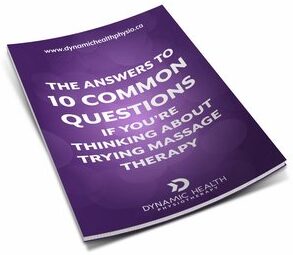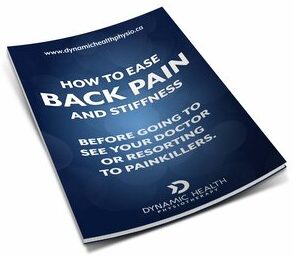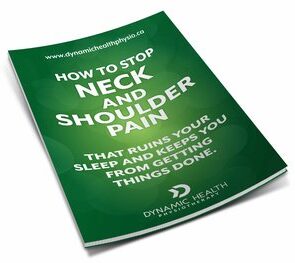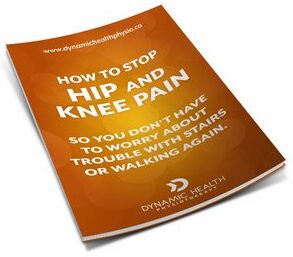- January 24, 2023
WHAT HELPS SEVERE NECK AND SHOULDER PAIN? WHAT TO DO FIRST WHEN DEALING WITH NECK AND SHOULDER INJURIES AND WHAT TO ABSOLUTELY AVOID.
What Helps Severe Neck and Shoulder Pain? - What to do first when dealing with neck and shoulder injuries AND what to absolutely avoid.
For anyone who has experienced severe neck and shoulder pain, you know firsthand how debilitating and frustrating it can be. Whether it’s due to a recent injury or chronic discomfort, the constant ache or sharp pains with movement can make it difficult to perform daily tasks and maintain the quality of life you want.
If you’re looking for relief, you might be wondering about the typical dos and don’ts that can help you manage your neck and shoulder pain. In this article, we’ll discuss some effective strategies we suggest in our clinic for reducing neck and shoulder pain, as well as some things to avoid in order to prevent further irritation.

Let’s start with what to do when you have neck and shoulder pain:
DO SEEK MEDICAL ADVICE
When dealing with neck and shoulder injuries, it’s important to first seek medical attention if you’ve sustained a serious injury or if the pain is severe and persistent. Your doctor or physiotherapist will be able to assess the extent of your injury and recommend appropriate treatment. One of the most effective ways to manage neck and shoulder pain is through physiotherapy.
DO PAY ATTENTION TO YOUR BODY AND LISTEN TO YOUR PAIN
If a certain activity or movement is causing discomfort, try to modify it or avoid it altogether. It’s important to avoid activities that put additional strain on your neck and shoulders, such as lifting heavy objects or engaging in strenuous physical activity. It’s also a good idea to practice good posture, as poor posture can contribute to neck and shoulder pain.
DO PAY ATTENTION TO YOUR BODY AND LISTEN TO YOUR PAIN
Ice or heat therapy and topical creams like Voltaren can be used to manage pain, depending on your injury. Ice can help to reduce swelling and inflammation, while heat can help to relax tight muscles. Different creams are used for different things but are generally used to relax muscles and reduce pain (especially for more surface-level pain).
DO PAY ATTENTION TO YOUR BODY AND LISTEN TO YOUR PAIN
Gentle neck stretches and exercises can help to improve mobility and reduce tension. Your physiotherapist can recommend specific stretches and exercises that will be helpful for your individual condition.
DO PAY ATTENTION TO YOUR BODY AND LISTEN TO YOUR PAIN
Other types of treatment such as registered massage therapy or techniques like dry needling are often very effective for relieving neck and shoulder pain and may be recommended by your healthcare provider. These therapies can also help by decreasing muscle tension and improving mobility in the painful areas.
DO BE CONSISTENT WITH YOUR TREATMENT PLAN
Once you’ve agreed on a plan with your physiotherapist, following through with the recommended exercises and therapies can help to speed up the recovery process and prevent future injuries. Incorporating stretches and exercises can also help to alleviate neck and shoulder pain by strengthening the muscles in the affected area, improving stability, and reducing overall muscle tension.
In addition to physiotherapy, it may be helpful to try incorporating lifestyle changes to manage your neck and shoulder pain. This can include things like getting enough rest, eating a healthy diet, and managing stress.
HERE ARE SOME OF THE THINGS TO REDUCE OR AVOID WHEN YOU HAVE NECK OR SHOULDER PAIN:
Don’t ignore the pain or try to “tough it out.” Seeking treatment and following a proper rehabilitation plan can help to alleviate discomfort and prevent further injury.
Don’t engage in activities that put additional strain on your neck and shoulders, such as lifting heavy objects or participating in strenuous physical activity.
Don’t rely on over-the-counter pain medication as a long-term solution. While it may provide temporary relief, it’s important to address the underlying cause of the pain.
Don’t sleep on your stomach, as this can put strain on your neck and shoulders. Instead, try sleeping on your back or on your side with a supportive pillow.
Don’t hold your phone between your shoulder and ear for long periods of time. This can cause strain on your neck and shoulders. Use a hands-free headset or speakerphone instead.
Don’t sit in one position for an extended period of time. Take breaks to stretch and move around to avoid stiffness and discomfort.
Don’t ignore warning signs of a more serious injury, such as numbness, weakness, or loss of function in the affected area. Seek medical attention if these symptoms occur.
Overall, managing neck and shoulder pain requires a combination of medical treatment, physiotherapy, and lifestyle changes. With the right approach, it’s possible to find relief from your discomfort and improve your quality of life.
If you’re struggling with neck and shoulder pain, don’t hesitate to talk to one of our physiotherapists in Fredericton today! We offer free physiotherapy discovery visits, where you can speak to a member of our team, ask any questions that you have, and find out what’s stopping you from finally healing that painful shoulder.
We can also help you understand how to get your shoulder healthier than ever, so you are able to make the most of your day, stay active with friends and family rather than spending it in pain, and even sleep better once that aching shoulder isn’t waking you up at night anymore.
Alternatively, you can always call us at 506-404-1565 if you prefer to talk over the telephone.

Have Questions About Massage Therapy

Need some help with your back pain?

Struggling with neck or shoulder pain?
Click the button below to claim your free copy of this neck and shoulder pain tips report!

